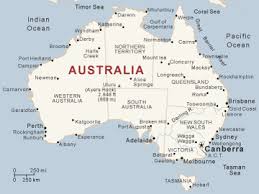记忆方法
记忆单词“Australia”可以使用联想记忆法:
1. 视觉联想:想象一个“大”(Au)的字母“u”(洲),就像一个放大镜一样,“洲”即“Australia”。
2. 词根分解:将单词分解为“Au”和“Stralia”,其中“Au”听起来像“奥”,可以联想到“澳大利亚”(Australia)像是一个美丽的“澳洲”。
3. 句子联想:构建一个简单句子,“Au”联想到“牛”(au),然后是“Stralia”联想到“大陆”,形成“澳洲牛大陆”,这有助于记忆“Australia”这个词。
1. 视觉联想:想象一个“大”(Au)的字母“u”(洲),就像一个放大镜一样,“洲”即“Australia”。
2. 词根分解:将单词分解为“Au”和“Stralia”,其中“Au”听起来像“奥”,可以联想到“澳大利亚”(Australia)像是一个美丽的“澳洲”。
3. 句子联想:构建一个简单句子,“Au”联想到“牛”(au),然后是“Stralia”联想到“大陆”,形成“澳洲牛大陆”,这有助于记忆“Australia”这个词。
以上内容由AI生成, 仅供参考和借鉴
英语词源
- Australia
- from Latin Terra Australis (16c.), from australis "southern" + -ia. A hypothetical southern continent, known as terra australis incognita, had been proposed since 2c. Dutch explorers called the newfound continent New Holland; the current name was suggested 1814 by Matthew Flinders as an improvement over Terra Australis "as being more agreeable to the ear, and an assimilation to the name of the other great portions of the earth" ["Voyage to Terra Australis"]. In 1817 Gov. Lachlan Macquarie, having read Flinders' suggestion, began using it in official correspondence. The ultimate source is Latin auster "south wind," hence, "the south country."
The Latin sense shift in australis, if it is indeed the same word other Indo-European languages use for east (see aurora), for which Latin uses oriens (see orient), perhaps is based on a false assumption about the orientation of the Italian peninsula, "with shift through 'southeast' explained by the diagonal position of the axis of Italy" [Buck]; see Walde, Alois, "Lateinisches etymologisches Wörterbuch," 3rd. ed., vol. 1, p.87; Ernout, Alfred, and Meillet, Alfred, "Dictionnaire étymologique de la langue latine," 2nd. ed., p.94. Or perhaps the connection is more ancient, and from PIE root *aus- "to shine," source of aurora, which also produces words for "burning," with reference to the "hot" south wind that blows into Italy. Thus auster "(hot) south wind," metaphorically extended to "south."
权威例句
- 1. Australia's rugby union side enjoyed a record-breaking win over France.
- 澳大利亚的英式橄榄球联盟队创纪录地赢了法国队。
- 2. I'vebeen dragged back from Australia for no sufficient reason.
- 没有充分的理由,我就从澳大利亚被硬叫了回来。
- 3. Australia, put in to bat, made a cautious start.
- 轮到澳大利亚队出场击球,他们开始打得很谨慎。
- 4. He decided to do something about reforesting man-made wastes of western Australia.
- 他决定为在澳大利亚西部人为导致荒芜的土地上重新造林做点事情。
- 5. Blake emigrated to Australia with his family at 13.
- 布莱克在13岁时随家人移民到了澳大利亚。

